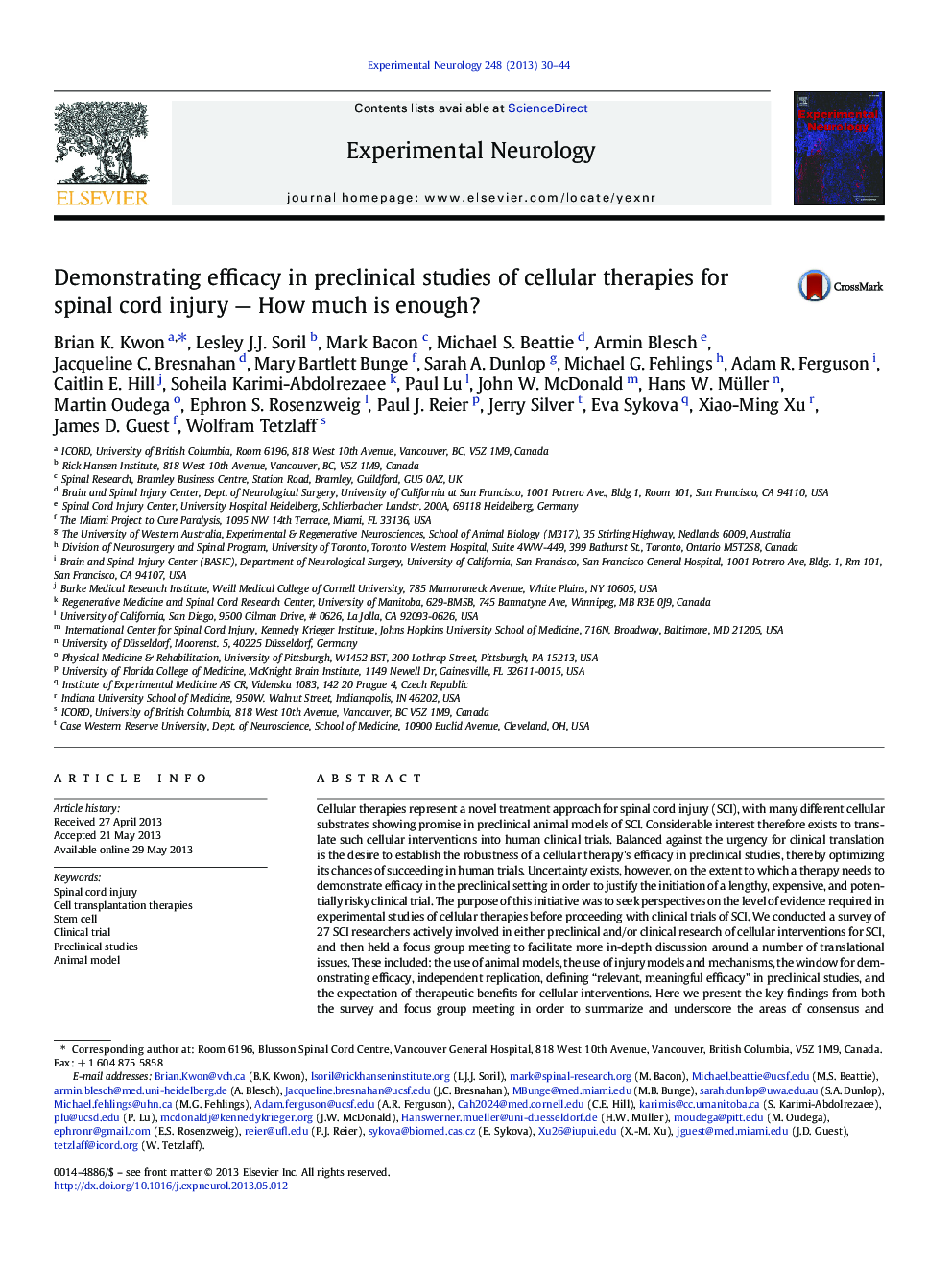| Article ID | Journal | Published Year | Pages | File Type |
|---|---|---|---|---|
| 6018028 | Experimental Neurology | 2013 | 15 Pages |
Abstract
Cellular therapies represent a novel treatment approach for spinal cord injury (SCI), with many different cellular substrates showing promise in preclinical animal models of SCI. Considerable interest therefore exists to translate such cellular interventions into human clinical trials. Balanced against the urgency for clinical translation is the desire to establish the robustness of a cellular therapy's efficacy in preclinical studies, thereby optimizing its chances of succeeding in human trials. Uncertainty exists, however, on the extent to which a therapy needs to demonstrate efficacy in the preclinical setting in order to justify the initiation of a lengthy, expensive, and potentially risky clinical trial. The purpose of this initiative was to seek perspectives on the level of evidence required in experimental studies of cellular therapies before proceeding with clinical trials of SCI. We conducted a survey of 27 SCI researchers actively involved in either preclinical and/or clinical research of cellular interventions for SCI, and then held a focus group meeting to facilitate more in-depth discussion around a number of translational issues. These included: the use of animal models, the use of injury models and mechanisms, the window for demonstrating efficacy, independent replication, defining “relevant, meaningful efficacy” in preclinical studies, and the expectation of therapeutic benefits for cellular interventions. Here we present the key findings from both the survey and focus group meeting in order to summarize and underscore the areas of consensus and disagreement amongst the sampled researchers. It is anticipated that the knowledge generated from this initiative will help to incite future scientific discussions and expert guidelines towards translation of a cell therapy for persons with SCI.
Related Topics
Life Sciences
Neuroscience
Neurology
Authors
Brian K. Kwon, Lesley J.J. Soril, Mark Bacon, Michael S. Beattie, Armin Blesch, Jacqueline C. Bresnahan, Mary Bartlett Bunge, Sarah A. Dunlop, Michael G. Fehlings, Adam R. Ferguson, Caitlin E. Hill, Soheila Karimi-Abdolrezaee, Paul Lu, John W. McDonald,
